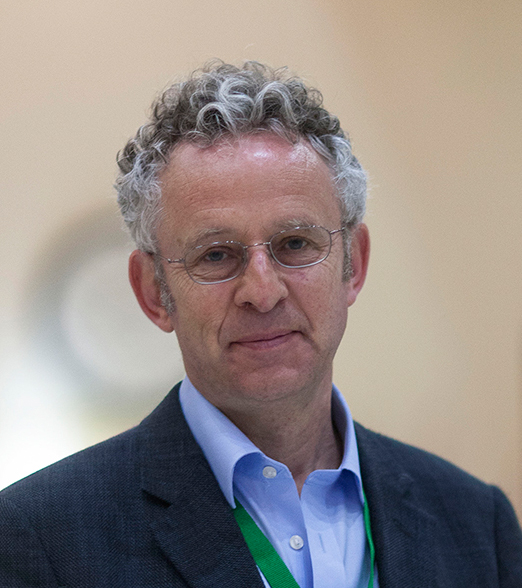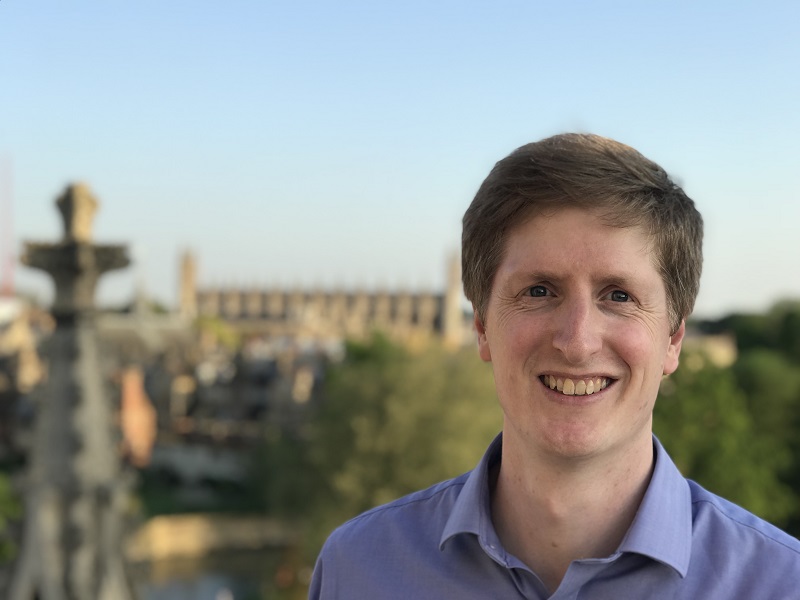Two St John’s Fellows among awardees of European funding for frontier research
“We look forward to seeing what major insights and breakthroughs will spring from this investment and trust”
A physicist and a statistician from St John’s College are among 209 leading researchers to win a share of €507 million in funding from the European Research Council ‘to follow their scientific instinct and dreams’.
Professor Sir Richard Friend and Professor Richard Samworth, both Fellows of St John’s, have been awarded Advanced Grants of €2 million and €2.1 million respectively, beating tough competition in the final round of Horizon 2020, the European Union funding for research and innovation.
Twelve researchers in total from the University of Cambridge have been successful in gaining funding from the European Research Council (ERC) – Europe’s premier research funding body for frontier research – with the UK hosting the highest number of grants, at 51. Every year, the ERC selects and funds the very best, creative researchers of any nationality and age, to run projects based in Europe. Its Advanced Grants support excellent researchers at the career stage where they are already established research leaders with a track record of achievements.
Professor Jean-Pierre Bourguignon, ERC President, said: “For this last ERC call under Horizon 2020, over 200 researchers will be funded to follow their scientific instinct and dreams. Still, the great increase in demand led to a very fierce competition: only 8% of candidates were successful. Many outstanding researchers with innovative ideas passed the excellence threshold, but were left unfunded due to budget constraints – another motivation for the national or regional levels to support these great projects.”

Sir Richard researches the physics, materials science and engineering of semiconductor devices made with carbon-based semiconductors in the Department of Physics. The grant will enable him to research a new class of semiconductors. He said: “This project will explore the electronic properties of organic semiconductors that have an unpaired electron to give net magnetic spin. This is based on our recent discovery that this unpaired electron can couple strongly to light, allowing very efficient luminescence in LEDs. We will explore novel combinations of optical excited states with magnetic spin states. This will allow new designs for LEDs and solar cells, and opportunities to control the ground state spin polarisation in spintronic devices.”
Sir Richard, who is Director of the Energy Transitions Interdisciplinary Centre, added: “ERC grants are very special because they provide funding for things we don’t usually do. This grant will support the physics I usually do and also some synthetic organic chemistry to make some of the new organic semiconductors I want to explore.
“ERC grants provide a lot of funding and a lot of freedom – these grants have made a big difference to European science.”

Of the 209 successful grants, eight are in mathematics. The funding awarded to Professor Richard Samworth, College Lecturer in Pure Mathematics and University Professor of Statistical Science, will help him explore robust statistical methodology and theory for large-scale data. He said: “The context of the proposal is that large-scale data are usually messy: they may be collected under different conditions, and data may be missing or corrupted, which makes it difficult to draw reliable conclusions. This grant will allow me to focus my time on developing robust statistical methodology and theory to address these challenges. Equally importantly, I will be able to build a group of PhD students and post-docs that will dramatically increase the scale and scope of what we are able to achieve.”
Professor Samworth, who is Director of the Statistical Laboratory, part of the Faculty of Mathematics at Cambridge’s Centre for Mathematical Sciences, added: “I was delighted when I found out I’d been awarded the grant. It will certainly represent a big boost for my research career.”
ERC competitions are open to researchers of any nationality and, in this round, scientists and scholars of 25 nationalities received funding after 2,678 applicants submitted their proposals in all fields of research, from science and engineering to social sciences and humanities. Female researchers submitted 22% of proposals and 23% of grants were awarded to women. Since the start of the Horizon Europe programme, the share of women among researchers awarded Advanced Grants has been steadily increasing from around 10% in 2014 to more than 22% in 2020.
Professor Bourguignon said: “We look forward to seeing what major insights and breakthroughs will spring from this investment and trust. We are pleased with the continued positive trend for women researchers showing that ERC’s sustained efforts on this matter pay off.”
The other grant recipients with the University of Cambridge recorded as their host institution are: Manish Chhowalla, Melinda Duer, Mark Gross, Zoran Hadzibabic, Christopher Hunter, Geoffrey Khan, Marcos Martinon-Torres, Marta Mirazon Lahr, Henning Sirringhaus and Helen Williams.
Published: 22/4/21